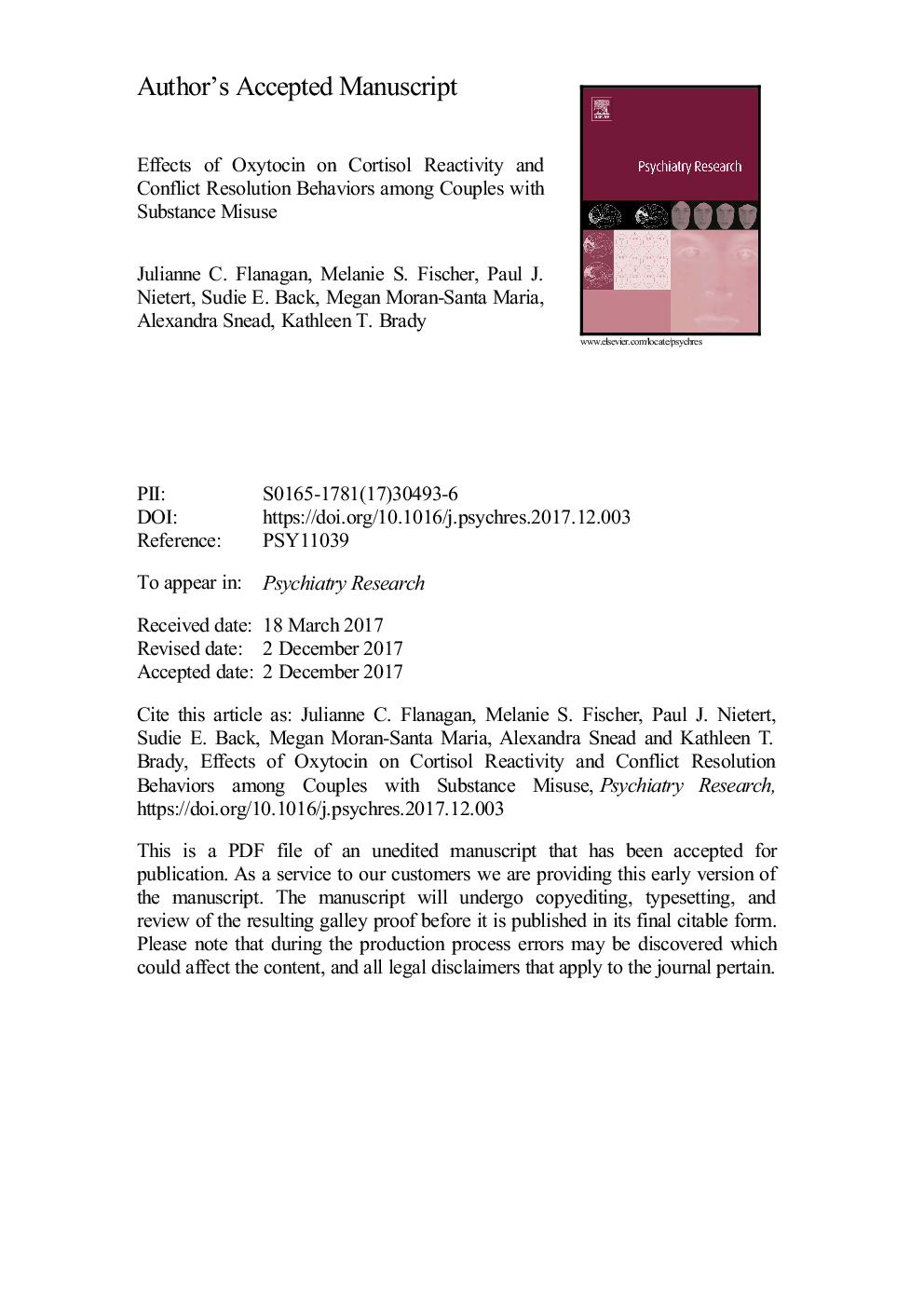ترجمه فارسی عنوان مقاله
اثرات اکسی توسین بر رفتار واکنشی کورتیزول و رفتارهای حل تعارض در زوجین با سوء مصرف مواد
عنوان انگلیسی
Effects of oxytocin on cortisol reactivity and conflict resolution behaviors among couples with substance misuse
| کد مقاله | سال انتشار | تعداد صفحات مقاله انگلیسی |
|---|---|---|
| 103283 | 2018 | 32 صفحه PDF |
منبع

Publisher : Elsevier - Science Direct (الزویر - ساینس دایرکت)
Journal : Psychiatry Research, Volume 260, February 2018, Pages 346-352
ترجمه کلمات کلیدی
اکسی توسین، زوج ها، استفاده از مواد، کورتیزول، جنسیت، ارتباط جنسی،
کلمات کلیدی انگلیسی
Oxytocin; Couples; Substance use; Cortisol; Gender; Sex;

